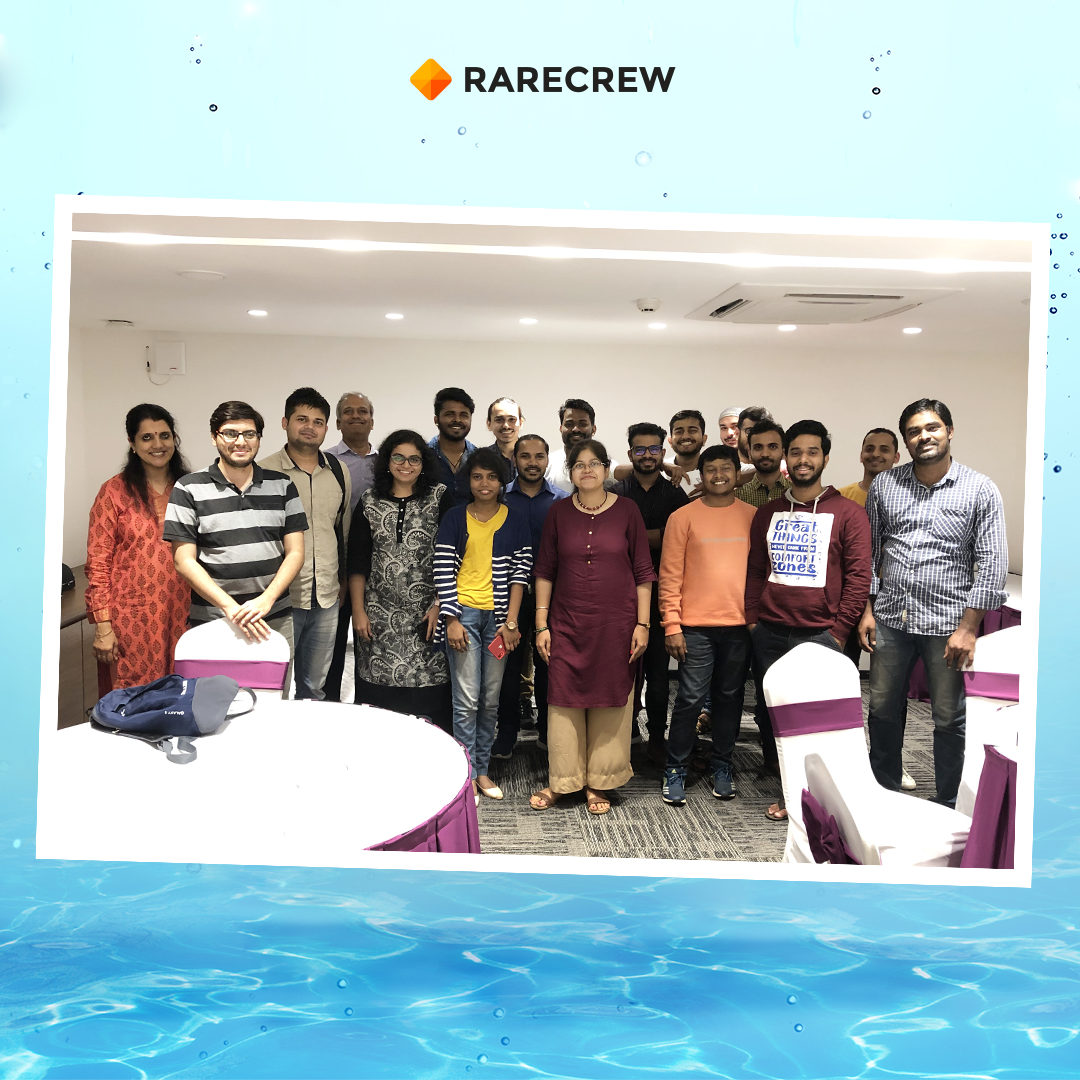
The Rare Crew team in India participated in a leadership development training called “Leading People for Performance”, which focused on improving leadership skills, led by the great instructor, Anju Bhatia. We are pleased that we could interview Anju for you.

Hi Anju, could you please tell us about yourself and your working path?
I am a specialist in Leadership Development, and it is a journey I chose because I’m very passionate about this subject. Having worked in the corporate world across hospitality, banking, and IT/IT sectors primarily in L & D and Leadership Development roles, I decided to focus upon developing leaders for individual and organizational success. Almost every organization today, either small, medium, or large, is hungry for developing leaders on current and next-level leadership competencies, as they see a huge gap in this area. This gaping hole leads to a host of challenges such as disengaged team members, operational exigencies due to poor decision making, and these also impact customer satisfaction. Further, it is extremely important to develop leaders when they are young, as they grapple with leading people for the first time and influencing across stakeholder networks. For me, developing young leaders is extremely critical, and hence, I spend most of my time developing first-line and mid-line managers and leaders.
I worked in highly challenging and results-oriented cultures in companies like Standard Chartered, Goldman Sachs, Accenture and Capgemini, and was exposed to what best and worst leaders do. While developing leaders, I usually share these stories of success and failures from my experience.
How would you define a good team leader? Is it for everyone?
A good team leader is one who looks at his team members, not as subordinate, but as “partners in success” because a manager-employee relationship is like a partnership where both work in synergy for each other’s success. A good team leader is also one who is a good coach, who strives to develop his team members and makes them succeed. I would like to mention here a quote from Jack Welch “Before you are a leader, success is all about growing yourself. When you become a leader, success is all about growing others.” This quote, in my view, sums up good team leadership.
Read on: This Makes The Project Coordinators The Key Players
How can we lead people more effectively?
The secret to effective team leadership is to be flexible in your leadership style. A leader should never apply a ‘one size fits all’ approach. It is the flexibility and ease of using different styles in different situations that make leading more effective. An agile leader analyses the situation, and based on the individual’s level of expertise, experience and exposure, applies the right style to get the best performance out of them.
What are the biggest mistakes team leaders make?
In my view, the inability to flex your leadership style based on the performance level of each individual is a costly error that team leaders make. Further, a team leader is sandwiched between varying demands from senior leadership from the top and from the teams below. The ability to strike a balance between these seemingly opposite forces is the skill they need to develop.
Another mistake that team leaders often make is being resistant to change. Instead of being change agents and drivers of change, they resist changes, small or big, inside and outside the organization. This inability to embrace change has huge repercussions on the organization’s success because survival in today’s world is all about the speed of responsiveness to change. The dire consequence of this rigidity to change could be loss of time, market share, revenues or, in worst case, even extinction. Hence it is critical that every leader develops the skill and mindset of responding to change and leading change through innovation and ideation.
Could you name the most important leadership skills and values?
Driving Results, Problem-Solving and Decision-Making, Being a Good Coach, Customer-Focus, Driving Change and Alignment to Organization’s Goals, are some of the most important leadership skills, in my view. For a leader, the core values of Integrity, Ethics, Teamwork, Collaboration and a Customer-First mindset are non-negotiable. These need to be inculcated into every leader to build a strong organizational culture.
Could you please explain to us the following key principles of team leadership?
● Everyone is a leader
This is a mantra for success that almost every company is adopting these days. It means that leadership does not start from the time you are in charge of a team. Leadership is behaviors and a mindset that every employee needs to demonstrate, irrespective of the age or years of experience. It means that even if you are a fresh college grad, you are expected to be a leader the moment you walk in through the door of your first employer. The corporate world is, therefore, extensively investing in developing leadership skills right from the base of the pyramid.
● Leadership is a mindset
Building credibility as a leader with their teams is the biggest challenge that team leaders face when they move into that role for the first time. The inability to manage the host of responsibilities that come with the role of a team leader is because they have not shifted their mindset from an individual contributor to a people leader. This shift or transition into a leadership mindset can happen only by developing new leadership skills and capabilities, and the ability to let go of individual contributor tasks. Therefore, leadership is a mindset that needs to be cultivated and nurtured.
● A leader is as good as his followers
The kind of team and team culture that a leader builds defines his / her own success. The leader’s success is dependent on the team members’ and, subsequently, the team’s success. Hence, a leader is only as good as his followers.
● Team members are not subordinating — but are PARTNERS in SUCCESS
This is my most favorite quote. If every leader can develop a mindset to see their team members as “Partners in Success”, and strive to make this partnership work only then can individuals, leaders, teams and organizations truly succeed!
This mantra itself can lead to building a culture of high performance.
Thank you!
